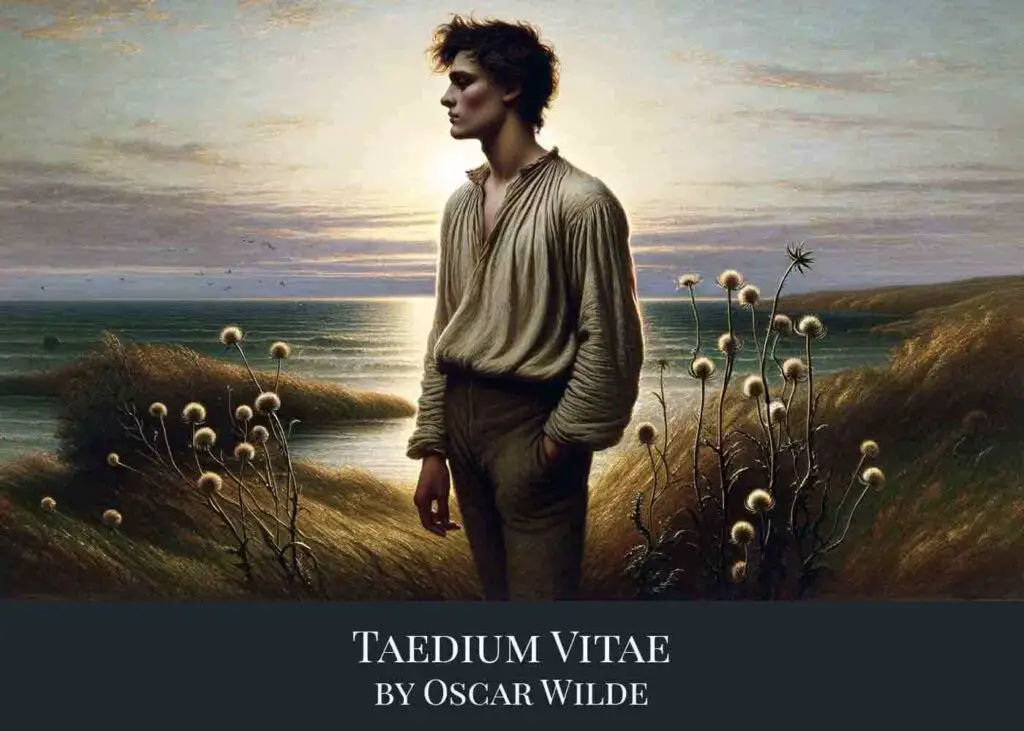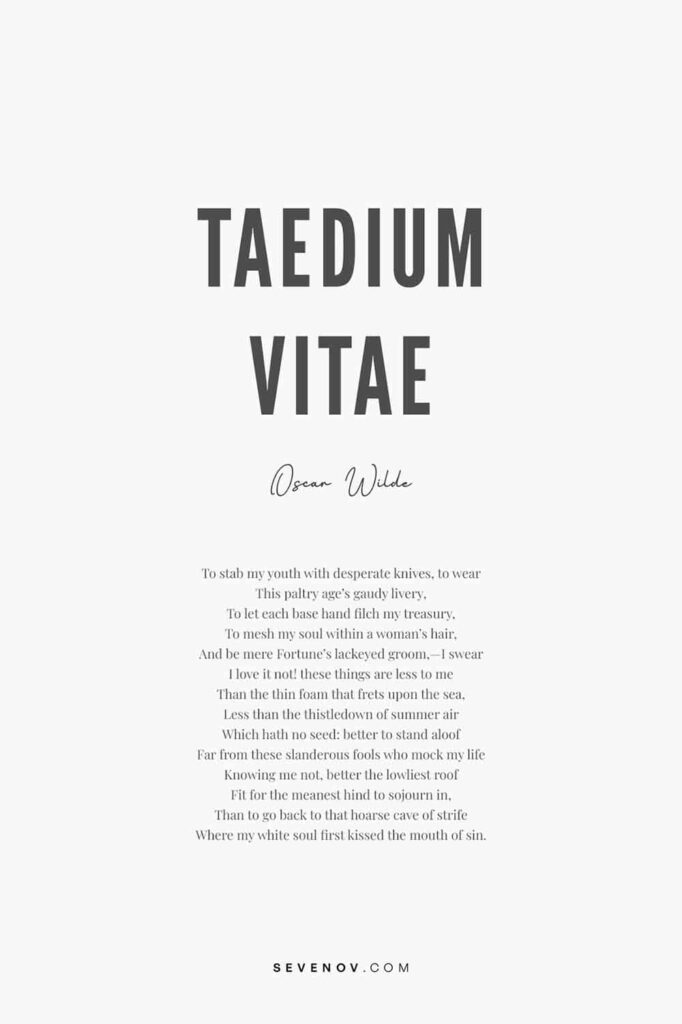
Taedium Vitae by Oscar Wilde
“Taedium Vitae” by poet and playwright Oscar Wilde is a powerful statement about the importance of staying true to oneself and one’s values, rejecting the superficial standards of society, and the inner conflict that arises when one is tempted to stray from personal integrity. “Taedium Vitae” is featured in Oscar Wilde’s poetry collection Poems. For those interested in exploring more of Wilde’s poetic genius, Poems ebook is available online at PageVio.
1. The Poem
To stab my youth with desperate knives, to wear
This paltry age’s gaudy livery,
To let each base hand filch my treasury,
To mesh my soul within a woman’s hair,
And be mere Fortune’s lackeyed groom,—I swear
I love it not! these things are less to me
Than the thin foam that frets upon the sea,
Less than the thistledown of summer air
Which hath no seed: better to stand aloof
Far from these slanderous fools who mock my life
Knowing me not, better the lowliest roof
Fit for the meanest hind to sojourn in,
Than to go back to that hoarse cave of strife
Where my white soul first kissed the mouth of sin.

Size: 8″ x 12″ (2:3 ratio)
Format: PDF
Copyright information: For personal use only
Note: Actual poster background color is white. For the sample poster, the background is made gray for illustration purpose.
2. Taedium Vitae Analysis
This poem is a passionate expression of rejection of worldly pleasures and vanities. Let’s break it down:
“To stab my youth with desperate knives, to wear / This paltry age’s gaudy livery,”: The speaker begins by lamenting how youth is often destroyed by the pressures and expectations of society. “Desperate knives” symbolize harmful experiences, while “gaudy livery” suggests the superficial and flashy nature of contemporary culture.
“To let each base hand filch my treasury, / To mesh my soul within a woman’s hair,”: Here, the speaker talks about the loss of one’s inner treasures (such as integrity or virtue) to the corrupting influences of the world, represented by “base hand[s].” The line about meshing the soul in a woman’s hair refer to becoming entangled in superficial or romantic entanglements that are ultimately unfulfilling.
“And be mere Fortune’s lackeyed groom,—I swear / I love it not!”: The speaker declares a disdain for being a servant to Fortune, a metaphor for the fickle and unpredictable nature of life and societal success.
“these things are less to me / Than the thin foam that frets upon the sea, / Less than the thistledown of summer air”: The speaker compares these worldly concerns to insubstantial and fleeting things – foam on the sea and thistledown, emphasizing their lack of true substance or lasting value.
“Which hath no seed”: This line further emphasizes the idea of the fruitlessness or lack of lasting impact of these worldly concerns.
“better to stand aloof / Far from these slanderous fools who mock my life”: The speaker would rather remain distant from those who do not understand or appreciate their true self and who mock their life choices.
“Knowing me not, better the lowliest roof / Fit for the meanest hind to sojourn in,”: The speaker expresses a preference for a humble existence over one filled with the strife and hollow values of society.
“Than to go back to that hoarse cave of strife / Where my white soul first kissed the mouth of sin.”: The final lines reveal a past where the speaker’s pure soul was corrupted by worldly vices, described metaphorically as a cave of strife and the mouth of sin. This indicates a past mistake or downfall, and a desire not to return to that state.
Overall, the poem reflects a deep disillusionment with the superficial, materialistic aspects of society and a longing for authenticity, purity, and perhaps a simpler way of life.
3. Conclusion
We believe you’ll appreciate Oscar Wilde’s ‘Taedium Vitae.’ You might also enjoy delving into Wilde’s other poems.




